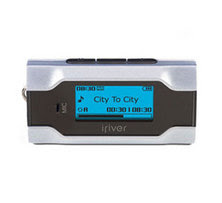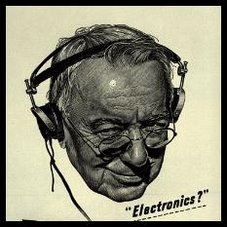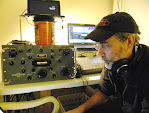
I picked up an iRiver T30 MP3 player/recorder on sale at Circuit City with some Christmas money this week; recent posts on the DX email lists, initiated by Bill Harm's request for advice on hard disk recorders, got my interest piqued. I thought the unit might be useful for portable DXing or DXing on the road. I had read review of the T30 online that mentioned this unit was worth considering. For $45, I felt it was worth a try.
Features: The T30 has 512 MB of memory, USB 2.0 connectivity, and works with Microsoft's orphaned Play For Sure DRM scheme (this was of no interest to me since I use an Apple iPod for my music listening). It will play MP3, OGG and WMA format files. It can record with a built-in mic (useful for lectures or conferences) and most importantly will record audio from a radio with a line-in input. This was my primary interest for DX recording. Unlike similar units it does not have a built-in FM receiver. My previous experience with FM radio MP3 players is that they are generally poor in sensitivity, so I did not see this as a detriment.
Form: The T30 is about the size of a pack of gum, 3" X 1" in a triangular shape, and came with headphones & USB cable, but no carrying case. It does have a wrist strap. Lack of a case was a concern, since the front of the unit is mostly a clear plastic display which I could see scratching easily - I found a case from an old USB hub that fit the T30 perfectly. The T30 uses a single AAA battery and reported having a 24 hour playing time on one battery. It can use alkaline or rechargeable batteries, and features a menu setting to chose which was in place.
Function: This is where I wish this report was complete, but I ended up returning the unit (hence the title "partial review".) The first time I plugged it in, it worked flawlessly - I could transfer files to and from it like a USB memory drive. I listened to some of my radio recordings from my PC with no problem. However, the second time I plugged it into my PC, the player froze up and I couldn't find any of the MP3 files on it. The only way I could reset it was to remove the battery. Every time I plugged it into the computer it froze again. I did not try to record to it, so I cannot report how well that worked. Whether this problem is unique to my PC or a more pervasive problem with the unit, I don't know.
Hopefully, there are other portable units that might fit this price/form factor in the future. If anyone has any suggestions, please post them in the comments. Maybe the new year will bring another MP3 recorder for consideration??





